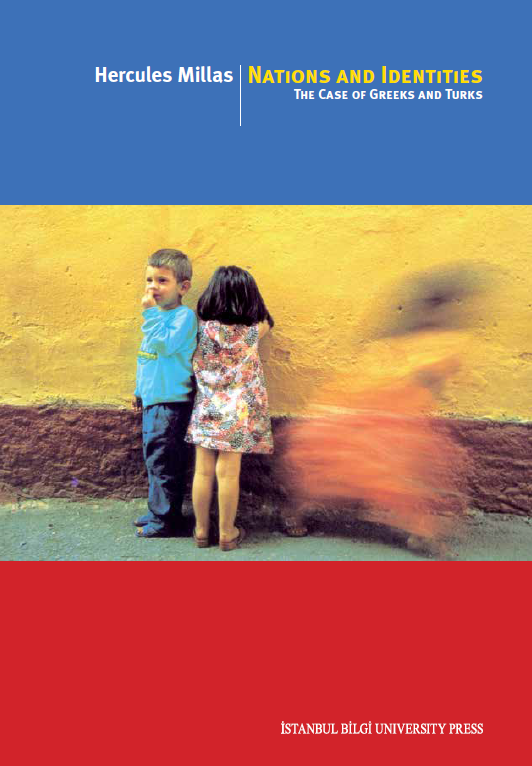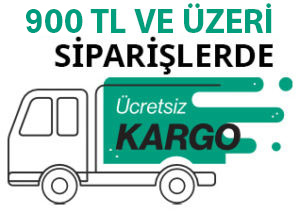
Nations and Identities: The Case of Greeks and Turks
The Greeks, the Turks and their historiographies, textbooks and literary texts are studied as a case to show how ethnic images, perceptions and prejudices of the Other are formed and operate. Based on his personal inter-ethnic lifelong experience, Hercul Milas’ proposes a way to approach these issues in education, too. All the essays in this study make use of the comparative approach to demonstrate how national identities are associated with an imagined Other. The identity of the Self –and national identity– as well as the related discourse, can become meaningful and easy to understand when judged as counteractions of the involved groups. The whole endeavor is an effort to approach nationalism as a manifestation that needs to be examined with a variety of academic disciplines.
Contents
Preface
1 History Textbooks in Greece and Turkey
Historical Background
Cause or Effect?
Textbooks in General
The Superiority of “Our” Nation
Belittling the Neighbour
Ommissions
Undermining Each Other’s Sovereignty
Estimating the Damage
Amending the Textbooks
Conclusion
Notes
2 The Contrasting Images of Greeks in Turkish Literature: Fiction Versus Memoirs
Ömer Seyfettin
Halide Edip Adıvar
Yakup Kadri Karaosmanoğlu
An Assessment
3 Tourkokratia: History and the Image of Turks in Greek Literature
Viewing Others, Positive or Negative
Turks as Abstractions
Concrete Experiences with Turks
Tourkokratia and the Resurrection Of the State
Conclusion
4 Greek-Turkish Conflict and Arsonist Firemen
Psyche and History
The Image of Greeks in Turkish Discourse
Silence, Semiology, Double Standard, Etc.
The Greek-Turkish Conflict
An Asymmetric Conflict
5 History Writing Among the Greeks and Turks: Imagining the Self and “the Other”
Introduction
Greek Historiography and the Perception of the Nation (Ethnos)
The Greek State and Helleno-Christianity
Alternative Approaches: Class Analysis and Religion
The Political Conjuncture and the Rise of Turkish Ethnic Nationalism
The Modern Turkish State and Secular Nationalism
Legitimising Identities and Sovereignty Rights
Anatolianism and the Turkish-Islamic Synthesis
Alternative Turkish Historiographies
An Assessment
6 Ethnic Identity and Nation Building: On Byzantine and Ottoman Historical Legacy
The Actual versus the Believed Legacy
The Construction of “Legacies” in Greece and Turkey
An Assessment
7 Perceptions of Conflict: Greeks and Turks in Each Other’s Mirrors
First Phase: Nation-States and the Imagined History of a Conflict
Second Phase: Blaming Certain Agents and Institutions
Third Phase: A Critical view of Society and National Identity
The Content of Such Perceptions: National Identity and “The Other”
Greeks and Turks Today - An Assessment
8 Non-Muslim Minorities in the Historiography of Republican Turkey: The Greek Case
Nation-Building, Historiography and Non-Muslims
Defining the Aims of our Study
“Tit for Tat”: Refuting Greek Claims in Turkish Textbooks
The Intellectual Background of Textbook Writers: A Few Notes
Change-Resistant Textbooks
“Popular” Historiography
“Confrontationists”, “Moderates” and “Liberals”: “Traditional” Academic Views
The “Confrontationists”
The “Moderates”
The “Liberals”
The “Critical” Historians
A Provisional Conclusion
9 Constructing Memories of “Multiculturalism” and Identities in the Turkish Novels
The Validity of an Argumentation
A Demarcation Line in 1980?
Memory and Multiculturalism Before 1980
The Ottomanists
The Nationalists
The Marxists
The Humanists
The Anatolianists
Memory and Multiculturalism After 1980
The Enduring Nationalist Approach
The Minority on the Minority: A Continuance
A Rupture After 1980: New Identities (Islamists, Kurds, Religious Orders)
Indirect Cosmopolitanism
The Greeks in Turkish Novels
“Living Together” in “Old Times”
Nostalgia and Multiculturalism
An Assessment
The Perception of the (Old and Present) Environment
“The Other” as a National Identity
10 The Imagined “Other” as National Identity - Greeks and Turks
First List of Complaints
The Complaints of the Greeks
Preliminary Comments on the Complaints of the Greeks
The Image of a Negative Turk
An Arrogant Turk (Collectively Sketched by Greeks)
The Complaints of the Turks
The Preliminary Comments on the Complaints of the Turks
The Image of a Negative Greek
My Greek Brother (Collectively Sketched by Turks)
Second List of Complaints
The Answers of the Greeks to the Second Question
The Answers of the Turks to the Second Question
How Much do the Parties Know “the Other”?
A. The Predictions of the Turks
B. The Predictions of the Greeks
Asymmetry in the Perceptions
Assessment of the “Answers”
Interpreting the Answers to the First Question
Interpreting the Answers to the Second Question
Who are the “Greeks”, the “Turks” and the “Participants”?
Silencing the Major Issues
Assessment of the “Answers”
Antagonistic Historiographies, Identities and the Other
Some Conclusions
A. On Identity and “the Other”
B. On Greeks, Turks and Their Relations
C. On Transcending National Prejudices
Appendix 1 - “First Question”
Appendix 2 - “Second Question”
Appendix 3 - “Third Question”
First Publication of the Preceding Articles
Name Index
Index
Imagologists are used to dealing with the distinction between auto-image and hetero-image. What Millas’s research has highlighted is something which, to my knowledge, has not yet been thematized in image studies, but which is of great importance: the collapse between auto-image and hetero-image, our image of the other’s image. I think something as important as this “image of an image” deserves its own name so that it can be thematized without circumlocutions. The term “meta-image” seems to present itself.
Prof. Dr. J. Th. Leerssen, University of Amsterdam
_Nationalism, national identity, national stereotypes and national prejudices are issues of academic interest for many; for me, due to my origin and due to my life story they were also phenomena that shaped my life. I was personally curious to find out what was going on with “these Greeks and Turks”! I approached the issues comparatively. I ended up in trying to demonstrate that nationalistic phenomena are unconstructive and harmful.
Herculles Millas, from Lecture “B” in the USA, University of Tuscon, Arizona and University of Brown, Rhode Island,
November 2010
Hercules Millas
Hercules (Iraklis) Millas was brought up in Turkey and presently lives in Greece. He has a Ph.D. degree in political science (1998) and a B.Sc. in civil engineering (1965). He worked as a civil engineer in Turkey, Greece, Indonesia, Saudi Arabia (1968-1985) and since 1985 he has focused on cultural activities. He published various books and articles, mostly on interethnic perceptions. He established the Greek literature department at Ankara University (1990-1995), he taught Turkish language and literature at various universities in Greece (1999-2008) and Greek-Turkish relations with respect to literary criticism and conflict resolution at Işık and Bilgi Universities of Istanbul (2009-2010).
He participated in a project to assist minority youth in matters of education in Western Thrace, Greece (2005-2013). Together with N. Dinç he prepared a documentary, The Other Town, on how Greeks and Turks perceive each other. He participated in various conferences related to the above topics in more than fifteen countries. He has been a columnist in the Zaman (Istanbul) for the last twelve years. He received the ‘Abdi Ipekçi Peace Award’ in 1992, the ‘Dido Sotiriou’ award of the Hellenic Authors’
Society in 2004 and the award of Free Thinking and Expression of Publishers’ Association of Turkey in 2005.
Some of his books are: The Images of Greeks and Turks; Textbooks, Historiography, Literature and National Stereotypes (in Greek), 2001; Do’s and Don’ts for Better Greek-Turkish Relations, 2002; The Greeks from Past to Present, (in Turkish), 2003. The ‘Other’ and Identity in Turkish and Greek Novels (in Turkish), 2005; Catalog of Common Greek and Turkish words, expressions and proverbs, (in Greek), 2008; Türkçe Kitabımız (Textbook for the Minority of Western Thrace, edit., 2008; The So Called Innocent Nationalism, (in Turkish) edit., 2010.
